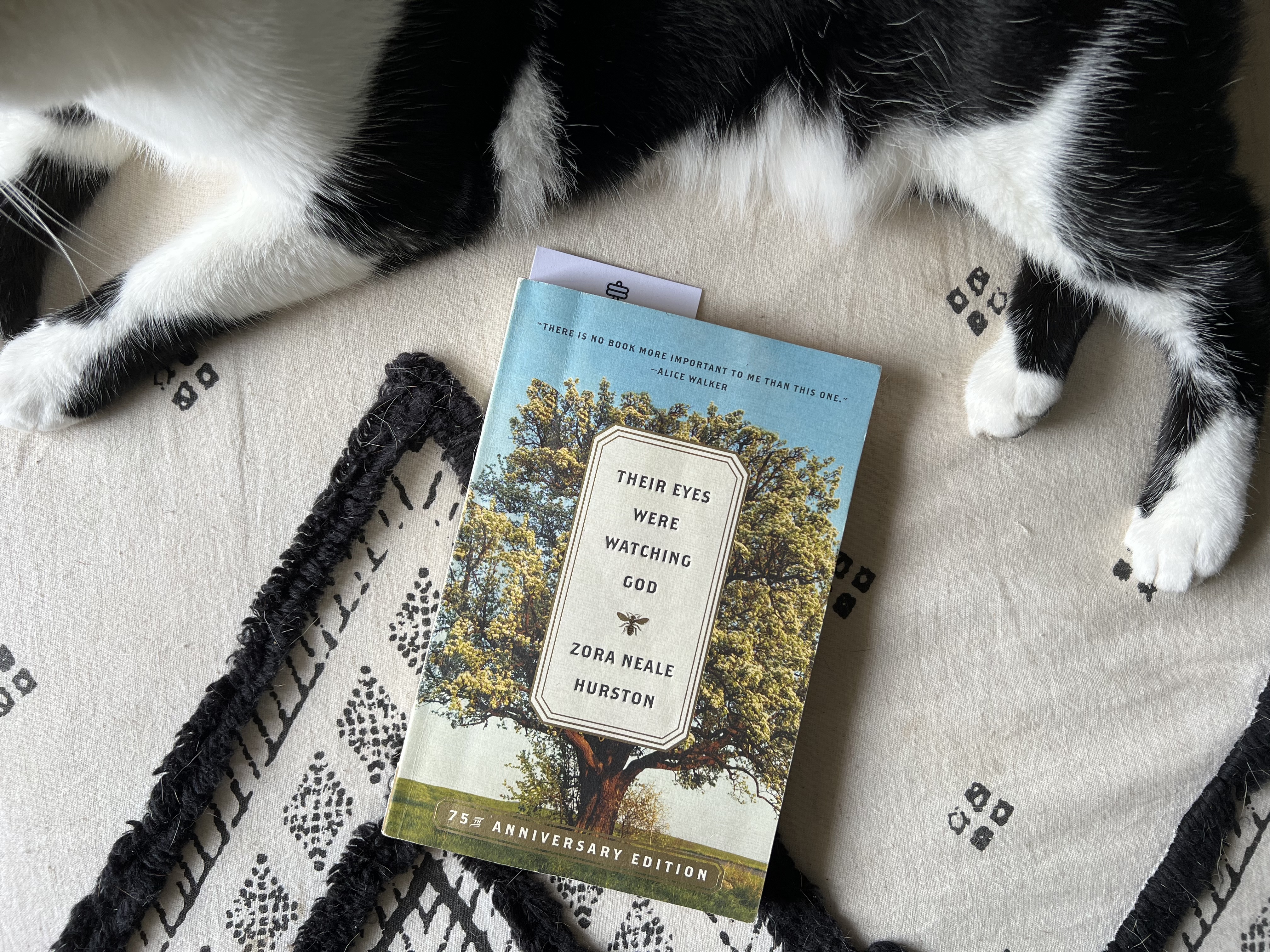
I paused my journey through Harry Potter to make space for African-American literature.
February neared, and I had just cracked open my new copy of Book 5. I was eager to delve into the darkness that Harry’s journey was walking toward; I was more eager to see the threads of hope and light win throughout.
Delightful as it had been, I sensed the importance of taking a break from my favorite wizarding journey last month in order to recognize Black History. I paused, and my spirit confirmed –
Harry will be there later. Try a new thing. Make a self-sacrificial move to step into a different story. Honor a history that deserves, and needs, to be told.
I don’t always choose to listen, but this time I did. I slid the bookmark between pages of the order of the phoenix, and picked up another book off the shelf – the one with the mighty tree and gold trimming on the front that has sat waiting for a couple years.
Although it had been recommended to me more than once, I didn’t know quite what to expect and didn’t want to taint the reading with my assumptions. I held the book with an open posture. The pages were open, and so were my hands. Ready to receive whatever lay there.
It seemed a sacred privilege to spend a few weeks with Zora Neale Hurston’s epic tale, Their Eyes Were Watching God.
Here’s the thing: people talk about good literature for a long time.
There’s something to be said about a story that is still affecting people’s lives 85 years after its publication date. Good, important literature tells a story that resonates decades later. This category of art teaches us about humanity is profound, deeply moving ways. And the reader is not left unchanged.
We should take note of the books that hold up. The books that transcend societal changes and cultural differences that inevitably arise throughout the ebbs and flows of history. Good literature withstands generations.
Their Eyes Were Watching God is one of those books.
“Here was peace. She pulled in her horizon like a great fish-net. Pulled it from around the waist of the world and draped it over her shoulder. So much of life in its meshes! She called in her soul to come and see.”
Zora Neale Hurston, Their Eyes Were Watching God
It didn’t take many pages to see why some name this tale the most important piece of African-American literature, and one of the most important pieces of all literature. As I journeyed through a tale of a Black woman in the early 20thCentury – not far removed from slavery – I felt the weightiness of it.
It seemed a privilege to participate in a reading that was so honest, so authentic, so raw.
Let me tell you about the story of Janie Crawford.
I was captivated at the first line. Zora’s (can I call her by her first name?!) lyricism came alive at the first word and remained steady throughout. Her prose is brilliant and her dialogue is rich.
And in this prose and dialogue stood the story of Janie Crawford. A woman on a quest to find her freedom, Janie’s story laid bare on the age-worn pages and I couldn’t look away.
“Two things everybody’s got uh do fuh theyselves. They got tuh go tuh God, and they got tuh find out about livin’ fuh theyselves.”
Zora Neale Hurston, Their Eyes Were Watching God
Childhood Janie is dreamy, a romantic, full of life and spirit. The evolution of dreamy, light-skinned, and long-haired Janie Crawford begins in the care of her dying Nanny and continues through three marriages. Her story sheds light on the difficult journey of a Black woman seeking freedom and independence in a troubling time in America’s short history. She longs for a full, free life but the systems and norms in place threaten to suffocate her vitality.
And yet, as we turn the pages, we see that Janie remains true to who she is. She both discovers herself, and sticks to herself, the entire novel –
even when Nanny wants her to marry for mere protection, and not for the passionate love that Janie desires,
even when those “protective” husbands abuse her and treat her as a work mule or mere adornment,
even when the white folks of the time attempt to keep her down,
even when the darker skin Black folks tell Janie to emphasize her lighter skin tone,
she remains true to who she is.
When Janie returns back home at the end of the novel, she is one Black woman who doesn’t have to live lost in sorrow, bitterness, fear, or romantic dreams. She is free to be wholly herself.
“You’se something tuh make uh man forgit to git old and forgit to die.”
Zora Neale Hurston, Their Eyes Were Watching God
It’s a journey of sorrow and inequality, yes – but it’s also one of joy and freedom, identity and resilience. Her determined resolve to live free, despite the oppressions of her age, is captivating. Janie Crawford is captivating.
Their Eyes Were Watching God was worth the pause.
Now in March, I can hardly call the choice to pause other reading to focus on this book for the Black History Month self-sacrificial. It was hardly any sacrifice at all. Through an intimate lens into the heart of a dreamy black woman seeking her freedom in an oppressive age, I learned more about history, desire, identity, and journeying with resilience.
Janie Crawford won’t soon be forgotten.
I recommend you meet her too.
“Janie saw her life like a great tree in leaf with the things suffered, things enjoyed, things done and undone. Dawn and doom was in the branches.”
Zora Neale Hurston, Their Eyes Were Watching God
